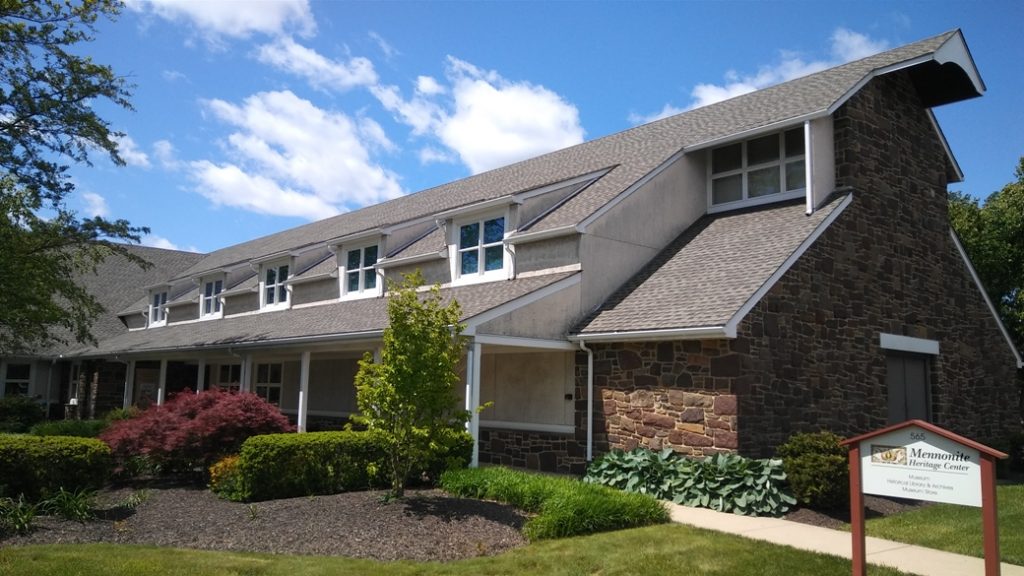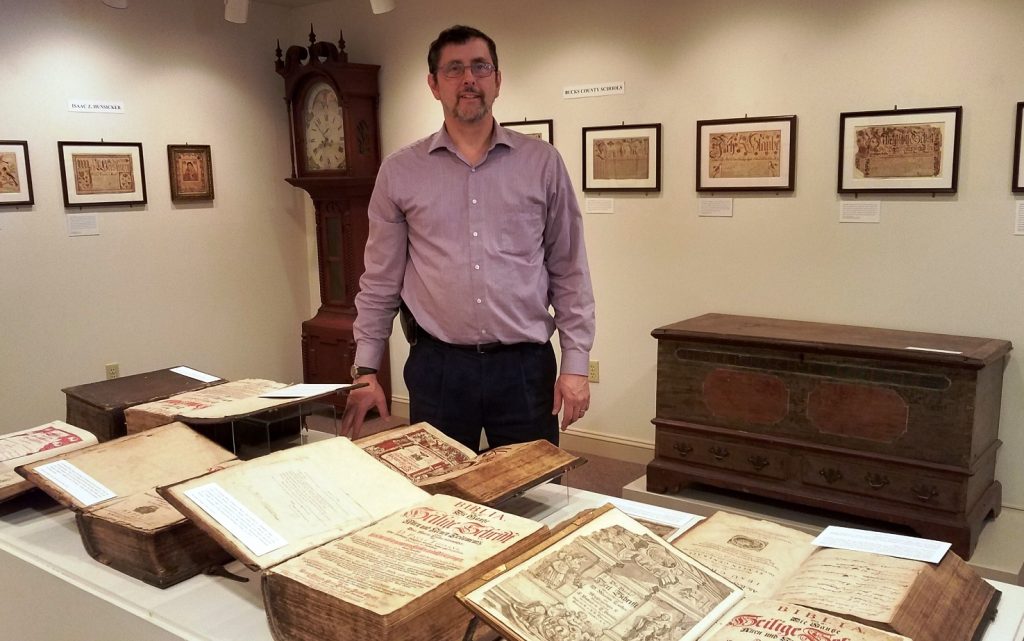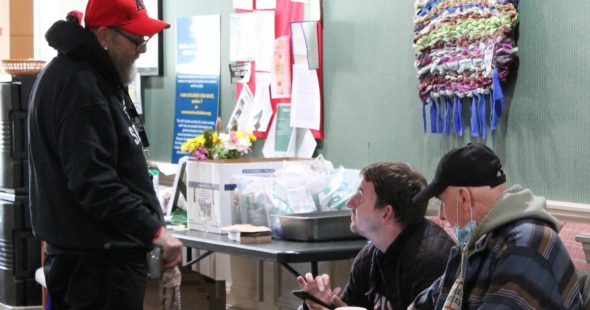by Mennonite Heritage Center staff

The Mennonite Heritage Center (MHC), is a nonprofit museum and historical library located at 565 Yoder Road, Harleysville, PA. It is home to the Mennonite Historians of Eastern Pennsylvania (MHEP) that were founded in 1974. Our mission is: To educate, inspire and witness to the church and community by collecting, preserving and sharing the Anabaptist/Mennonite story.
The MHC keeps the records of the Mennonite communities in Eastern PA who began immigrating from Europe in 1683. For centuries, these primarily Pennsylvania German congregations lived quiet lives, separated from other communities, maintaining their own schools until the mid-19th century, and speaking the Pennsylvania German dialect until the mid-20th century.
The MHC historical library has volumes relating to Mennonite and local history, faith, and life and an archive that includes rare books, manuscripts, and other printed materials. Manuscript collections vary from farming records to personal diaries and photographs. Many of the local congregations and Mosaic Mennonite Conference have chosen us to preserve their records. We invite people to use the library to do genealogical research.
One of the most significant museum collections is the fraktur collection. Fraktur is a kind of colorful illuminated manuscript. It is called fraktur because of the broken or fractured style of German lettering. The artifact collection also includes quilts, coverlets, samplers, clothing, furniture, farm implements, housewares and musical instruments.

Because of the pandemic, we were closed from March 12 until July 1 and have been featuring posts on our website (mhep.org), our Facebook page, and the Pa Dutch at Home Companion blog, a joint project of the MHC and the Goschenhoppen Historians Schwenkfelder Library & Heritage Center.
In a more typical year, the MHC features exhibits and programs on Anabaptist and local history topics. Saturday workshop participants enjoy learning traditional crafts such as basket weaving, paper marbling, and fraktur drawing. The Whack & Roll Croquet Tournament that usually happens in spring, is now scheduled for Saturday, August 29 and is a fun competition with teams from area nonprofit organizations vying for cash prizes.
The annual Apple Butter Frolic, our fall harvest festival, will not be held this year but we are working on an event which will include pick-up sales of delicious traditional foods. The MHC will be sharing a portion of the proceeds from this revised October event with the Conference Shalom Fund to be used for food insecurity needs. Watch for information about this fall food celebration!
Our board and staff are thinking about our role as a place for Mennonites and the broader community to learn about the Mennonite heritage. We want to become more reflective of the growing diversity of the local Mennonite community today. We especially encourage people and congregations of color to visit the Mennonite Heritage Center, and contribute your family and faith stories to our collections, exhibits, and programming. Items can also be submitted for the archives digitally. We welcome volunteers to host in the museum and help with events and projects such as installing exhibits or archival sorting. You can also support the MHC with an annual membership. Memberships begin at $55/$45 annually and members receive our quarterly publication and discounts on workshops/purchases. Please contact us at 215-256-3020 or info@mhep.org for information on volunteering or becoming a member.







